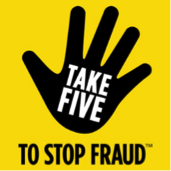Never has there been a more perfect storm for fraudsters and scammers than the COVID-19 crisis, which has provided these criminals with a ready-made, target rich environment for them to exploit. The uncertainty of the situation, coupled with the increase in financial stress, with potential loss of jobs and businesses all contribute to making this a desperate time for many. Feeling overwhelmed, vulnerable and isolated, individuals are more likely at this time to fall victim to scams and frauds. And fraudsters know this. They are adaptable in their criminality to all situations and ready to take advantage of anyone. Fraudsters love a disaster.
More than 850 victims COVID-19 related frauds, totalling losses of £2 million have been reported to Action Fraud so far and there have been over 3,000 phishing attempts reported. The true figure is certainly higher as many cases may have gone unreported. Fraud and scams are variable, but some common ones seen so far include:
| Supplier Scams | Especially for high-demand items such as medical supplies, surgical masks, hand sanitiser. Also, fake-testing kits for sale and goods that never arrive. |
| Fake branding scams | Fraudsters are impersonating companies, the government and police to try to trick people, especially regarding offers of financial support, through unsolicited emails, phone calls and text messages. |
| Online scams | The increase in the number of people working remotely means that significantly more people are more vulnerable to computer fraud, where criminals will try and convince you to provide access to your computer or divulge your login details and passwords. |
| Phishing scams | Scammers are posing as national and global health authorities, including the World Health Organization (WHO) and the Centers for Disease Control and Prevention (CDC), are sending phishing emails designed to trick recipients into downloading malware or providing personal identifying and financial information. |
| Insurance scams | Unsolicited contact from calls from fake claims management or insurance companies saying they can help you recuperate losses by submitting a claim, for the cost of a holiday or other cancelled events due to coronavirus. Will ask you to send them some money or your bank details. |
| Investment scams | Using the uncertainty of the stock markets at this time, fraudsters are trying to trick people into investing in companies they claim can prevent, detect, or cure COVID-19 and therefore, the stock of these companies will dramatically increase as a result. |
| Charity scams | A number of bogus charities are being set up to scam people and also ‘good cause’ scams, where invest investment is sought for things such as the production of sanitiser, manufacture of personal protection equipment or new drugs to treat coronavirus. |
Protecting yourself and your company from COVID-19 fraud
- Shop safely online and if you need to use new companies try to get recommendations or do some research beforehand.
- Watch out for scam messages and avoid clicking on links and attachments and do not respond to unsolicited messages or calls that ask for personal or financial details.
- While working from home, make sure you have a secure VPN connection to the corporate network, and restrict the access rights of people connected to it.
- Protect your devices from the latest threats by ensuring anti-virus and anti-malware software is up to date.
- Do not be pressurised into accepting help and making investments.
- Only give donations to registered charities.



